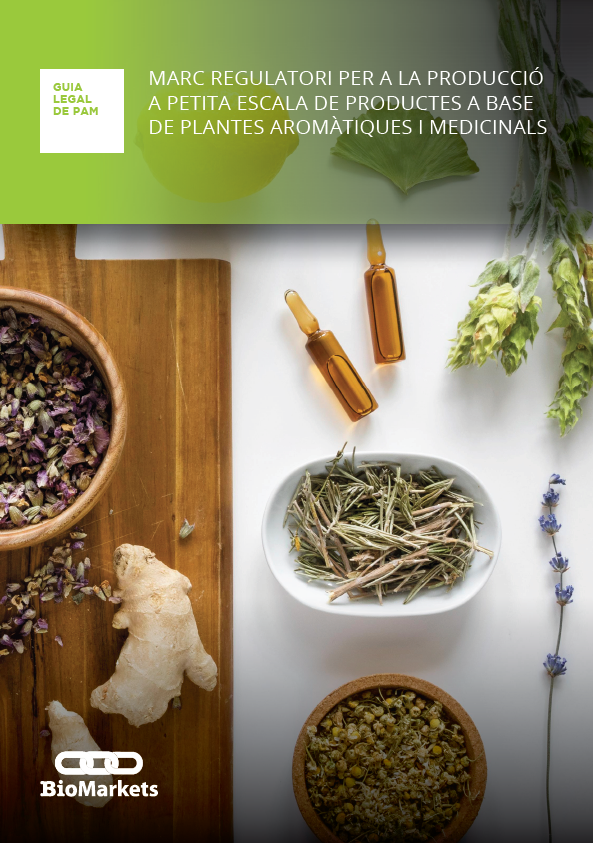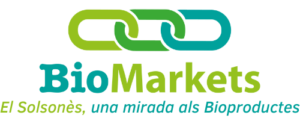At present, most of the producers in Catalonia who cultivate and/or collect medicinal and aromatic plants complement the agroforestry activity with the transformation of raw materials and the manufacture of final products for direct sale to the final consumer, with the aim of making economic activity profitable, since most are small farms, especially in mountain areas, that produce too little to sell wholesale. However, the adventure of manufacturing and marketing processed products can be a headache if you are not well aware of the maze of regulations that regulate these activities.
The publication, written in Catalan, has been produced as part of the BIORMARKETS project with the title “Marc Regulatori per a la Producció a Petita Escala de Productes a base de Plantes Aromàtiques i Medicinals” , to try to answer this essential part to start a business in this sector.
This publication aims to present, in a more or less orderly and intelligible way, the different legislation and procedures in the field of the main products that can be made by producers and/or small artisans in the food, medicine and cosmetic
The guide has been edited by the Group of Aromatic and Medicinal Plants of the Forest Science and Technology Center of Catalonia, drawn up thanks to the knowledge of experts in these matters, and is divided into 3 blocks:
- FOOD PRODUCTS: Marta Quintana i Medina, Law graduate, lawyer specialized in food law. With the collaboration of: Ramon Cortasa, Technical Agricultural Engineer, agri-food consultant.
- PHYTOTHERAPY PRODUCTS: Anna Galera Serrán, Community Pharmacist, Biologist specialized in phytotherapy.
- COSMETIC PRODUCTS: Núria Gavaldà i Mestre, Master in the cosmetic industry, university expert in information file and evaluation of the safety of cosmetic products. With the collaboration of: Ariadna Sans, chemical engineer, co-owner and technical director of Agalla SCP.
The first block breaks down the responsibilities, obligations and procedures of companies that want to make and sell food products, starting with general aspects and focusing on the particulars of those made from aromatic plants, while also indicating what needs to be taken into account for carry out a primary transformation (drying and/or distillation).
The second block, on herbal products, is divided into three chapters, breaking down the differences between herbal medicines, health products and food supplements.
And finally the third block, unfolds cosmetic products, starting with an introductory chapter on notions of cosmetic regulations, to know what types of cosmetics exist, how to open a cosmetic laboratory and how to start manufacturing and putting these products on the market. The second chapter delves into the manufacture of phytoextracts, either as cosmetics or as cosmetic raw materials. The annex also lists other related products, regulated by other regulations: Detergents, cleaners and air fresheners; Biocides; and Personal care products.
We hope that this guide, the result of the PECT project BIOMARKETS, can guide all those entrepreneurs who want to start a company or consolidate their projects related to the world of aromatic and medicinal plants.
The bioeconomy as an engine of change and model of territorial transformation. New knowledge, Innovation, Transfer and Impact from the endogenous natural resources of Solsonès. Operation 2. In-BIOXARXA: New Model in a network of mountain bioproducts.
This project is co-financed by the Generalitat de Catalunya through a call for co-financing for territorial specialization and competitiveness projects (PECT) within the framework of the RIS3CAT with a grant of €111,124.24.


